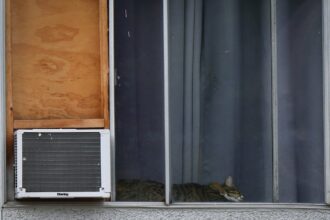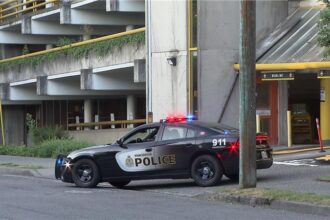In a striking reversal that has sent ripples through Alberta’s educational landscape, Premier Danielle Smith’s government has temporarily halted its controversial policy restricting certain books in school libraries. The decision comes after weeks of mounting pressure from educators, parents, and civil liberties advocates who denounced the measure as government overreach into educational autonomy.
The policy, initially framed as a protection for children, would have banned books containing “inappropriate sexual content” from school libraries across the province. Critics, however, quickly identified that the measure appeared to disproportionately target LGBTQ+ content, raising serious concerns about discrimination and censorship in educational settings.
“This pause allows us to engage in more meaningful consultation with stakeholders,” Education Minister Demetrios Nicolaides stated during yesterday’s announcement. “We remain committed to protecting children while ensuring our policies respect the diverse needs of Alberta’s students.”
The government’s retreat marks a significant development in what has become one of the most contentious educational policies in recent Alberta history. School boards across the province had expressed alarm about the implementation timeline and vague criteria for determining which materials would be subject to removal.
The Alberta Teachers’ Association welcomed the pause but remained cautious about future iterations of the policy. “Educators need to be at the table when decisions affecting classroom resources are made,” said ATA President Jason Schilling. “Professional judgment and established selection protocols already exist in our schools.”
The controversy has highlighted deeper tensions between the provincial government’s policy direction and local educational autonomy. Several school boards had already signaled potential resistance, questioning whether the province had overstepped its authority in dictating specific content restrictions.
Parents have expressed mixed reactions, with some supporting stronger content guidelines while others worry about the implications for inclusive education. “My concern was always about who decides what’s ‘inappropriate’ and whether that would be influenced by politics rather than educational value,” said Calgary parent Melissa Tremblay, who participated in last weekend’s protest against the policy.
The government has not provided a timeline for when or if the policy might be reintroduced, stating only that additional consultation will take place before any further action. This development comes amid similar controversies in other jurisdictions across North America, where debates about educational content have increasingly become politicized.
The temporary reversal raises important questions about the delicate balance between parental rights, student needs, and government oversight in public education. As Alberta navigates this contentious territory, the fundamental question remains: who ultimately should have the final say in determining what materials belong in our schools?
For continuing coverage of this developing story, visit CO24 Politics and Canada News.










